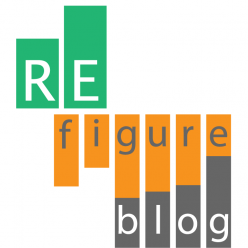This is a series of posts reflecting on ReFigure’s roadmap, past and present. The first post looks back on the key efforts of 2018.
The new team members that joined ReFigure in 2018: Uri Blank, Sergei Nevidimtcev, Andrey Pavlov, Artem Bakharev are the software development team. Kevin O’Brien Ph.D., a postdoctoral fellow at the time, helped with the ReFigure Undergraduate Course and user development. Ben Masuch and Tingting Zhang are assisting with UI and marketing. Alena Lokhmanenko joined as an undergraduate intern. Abena Mantey continued her internship from 2017.
ReFigure was initially designed for early career researchers. We heard feedback that it would be useful for patients, citizen scientists and as a teaching tool. Thus, we decided to demonstrate ReFigure to diverse users. For instance, in June (Cancer Immunotherapy Month) James Joseph Akin (Joe) and l decided to share our knowledge about the disease and introduce a variety of interested people (patients, caregivers, students, scientists) to tools that may help them to deal effectively with processing information from scientific papers. It resulted in Figure-a-Thon event in the end of June 2018. Later in the year, due to team member Alena Lokhmanenko’s interest in autism, I also assessed the awareness about scientific research in patients and caregivers by participating in the Autism Walk in Boston. This also helped ground the multiple ReFigures that Alena has created on Autism in a lay context, making the text reader friendly.
Kevin began investigating the use of ReFigure by medical residents. Depending on specialty, residents are required to perform scholarly activities. Residents reported that many of their studies went unpublished and unappreciated due to the limited scope of their work. Residents also reported that a method for sharing their findings privately was crucial.
ReFigure team is grateful for the chance to participate in multiple symposia and the chance to celebrate the formation of the Knowledge Futures Group at MIT as their affiliates. I participated in the eLife webinar on “Alternatives to traditional publishing” and was part of panel discussion on how early career researchers can change science communication at the Gordon Research Seminar on Centromere biology. ReFigure also participated in a minisymposium on reproducibility, the open science week programming at the Countway Library at Harvard and the STEM week programming at Bunker Hill Community College where I discussed a number of topics starting from where to search for scientific papers to what is the possible strategies of reading them. In addition, various scientific tools were presented and their practical use was discussed. A list of all ReFigure demos can be found at the end of this post.
Collaborations: ReFigure established partnership with Open Knowledge Maps in March 2018. Knowledge Maps are insightful, open maps (like venn diagrams) of the knowledge around your search term, with links to the top 100 papers and open access PDFs. The collaboration is a commitment to shared goals: open and impactful of science. A similar collaboration was that between ReFigure and Fractal Flows started in August 2018 where scientific claims can be submitted and anyone can add supporting or refuting knowledge. Many ReFigures have already formed the basis of claims and FractalFlows is another avenue of visibility to ReFigure users.
In the second half of 2018, due to feedback received and the motivation of our undergraduate team members, we started designing a curriculum around open science, reading and sharing research for those who are new to scholarly literature such as undergraduate students. This lead to the launching of the Undergraduate Course. During this short free interactive online course students will learn how to read scientific papers, how to communicate science on social media and how to use different scientific tools. In addition, students will learn about Open Access and its’ value.
Product development: A major effort in 2018 headed by Joe and Uri was the development of two new features which increase ReFigure’s compatibility and use cases. These stemmed from observation of user behavior coupled with what we had heard in 2017 focus groups and will be announced in the next blogpost.
When Alena first suggested this post, it was yet one more thing on my to-do list. However, this reflection has been inspirational and informed our 2019 roadmap.
ReFigure demos: eLife webinar, Countway Library, Dana Farber Cancer Institute, University of Texas Library at Austin, Rogers State University


